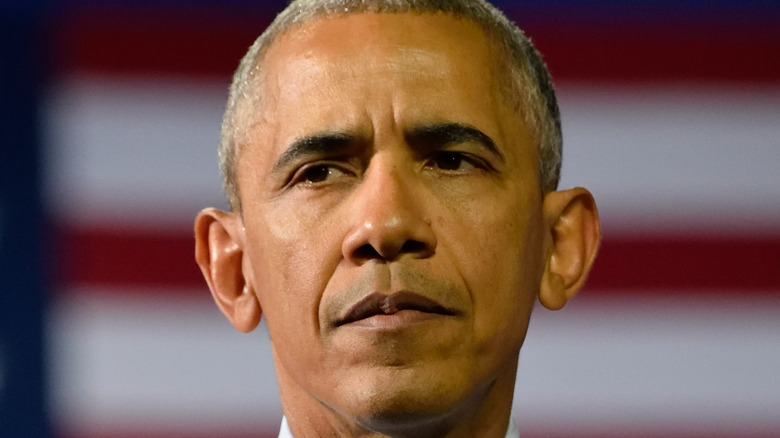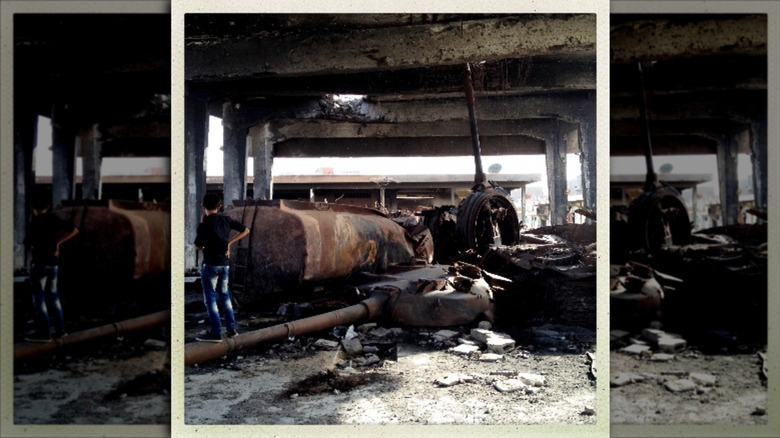Barack Obama's Biggest Regret As President May Surprise You
In February of 2011, news broke that the Libyan leader Muammar Gaddafi was violently targeting civilians in response to peaceful protests that were held in Benghazi. In response, the United Nations was spurred into action, mobilizing NATO forces to help protect the people of Libya from violence perpetrated by their own government (via NATO). Then-president Barack Obama made the decision to intervene in Libya, and in March of 2011, a coalition of NATO forces — including American, French, British, and Canadian troops — launched a military intervention, enforcing an arms embargo and enacting a no-fly zone over the country.
On October 20, 2011, the deposed leader Gaddafi was killed by Libyan rebel forces. According to the BBC, NATO made the decision to pull out of the fighting and end all operations over Libya shortly thereafter on October 31, 2011. The hope was that Libya would emerge as a liberated nation, but that did not happen. Instead, the subsequent power vacuum that was created following Gaddafi's death led to ongoing chaos and turmoil throughout the country. The U.S. decision to intervene in Libya was a difficult one, and it was also the catalyst for what Barack Obama once called his biggest regret as president, which he discussed in an interview with Fox News shortly before the end of his second term.
Obama regretted not preparing for the day after the Libya intervention
While Barack Obama said he still believed the intervention was the right thing to do, the former president said he regretted not implementing a better plan of action for Libya afterward. "Probably failing to plan for the day after, what I think was the right thing to do, in intervening in Libya," he told Fox anchor Chris Wallace when asked to reflect on his biggest mistake as president (via Fox News).
The Libyan intervention has remained a controversial foreign policy decision and was widely criticized for being an extension of what some scholars consider to be a consistent failure of post-conflict stabilization in America's post-2001 pattern of war. "In Afghanistan, Iraq, and Libya, Washington toppled regimes and then failed to plan for a new government or construct effective local forces — with the net result being over 7,000 dead U.S. soldiers, tens of thousands of injured troops, trillions of dollars expended, untold thousands of civilian fatalities, and three Islamic countries in various states of disorder," Dominic Tierney, a professor of political science at Swarthmore College, explained in a 2016 piece for The Atlantic. "Obama was elected on a 'no more Iraqs' platform, but he repeated the same mistake of winning the war and losing the peace," he added.

